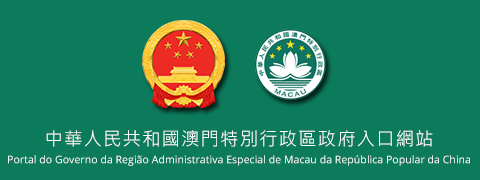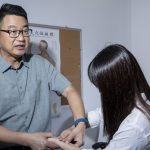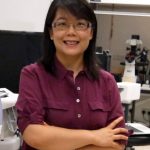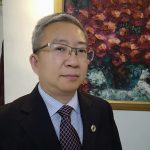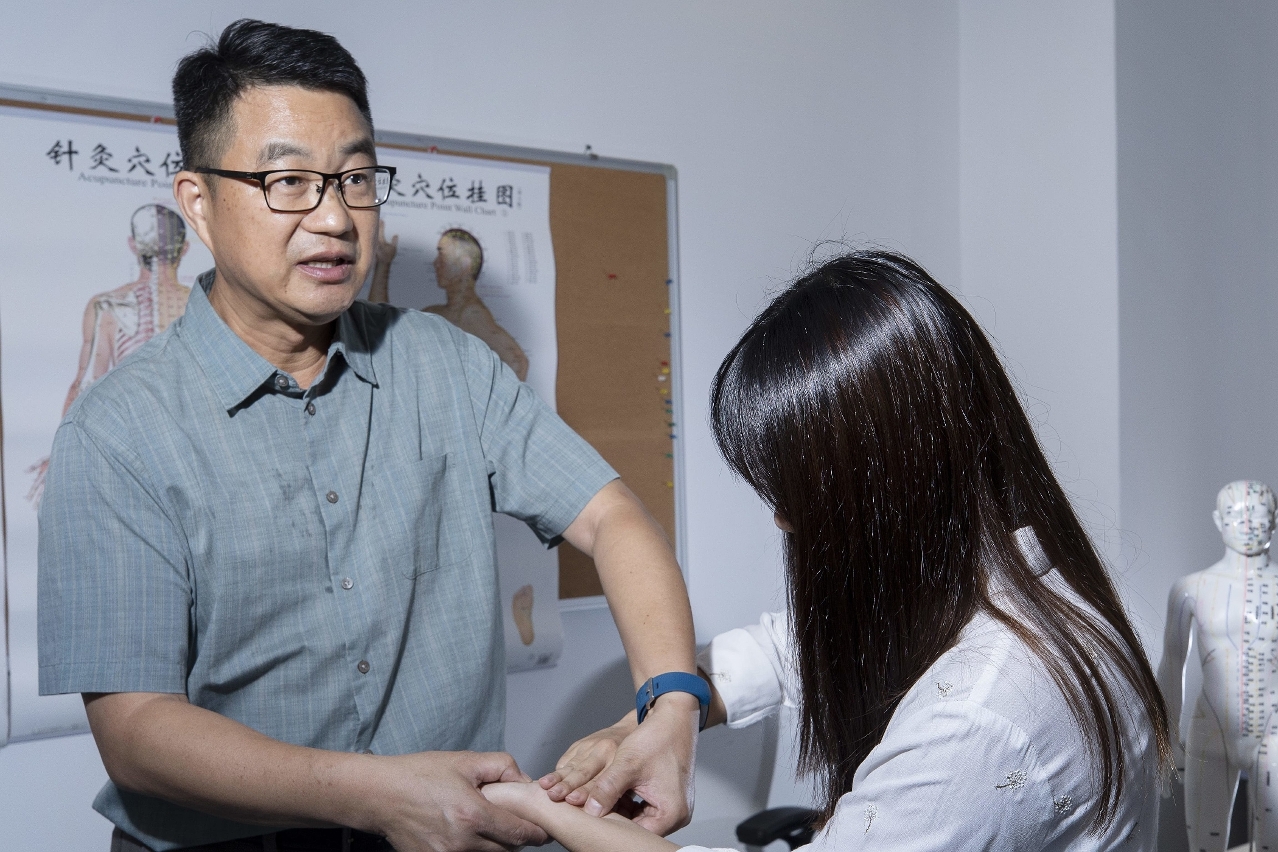 ICMS Deputy Director and immunology expert Prof Chen Xin
ICMS Deputy Director and immunology expert Prof Chen Xin
As the novel coronavirus continues to spread and takes its toll, new information with varying degrees of accuracy keeps emerging every day. To help the public gain a scientific understanding of the disease, three experts from the University of Macau’s (UM) Institute of Chinese Medical Sciences (ICMS) talk about how to prevent novel coronavirus from three perspectives: immunology, virology, and Chinese medical sciences.
First things first: how to boost your immune system? Prof Chen Xin, deputy director of the ICMS and an immunology expert, says that a strong immune system plays a deciding role in protecting against infectious diseases. As the novel coronavirus continues to spread, Prof Chen advises the public to take the following steps in their daily lives in order to boost their immune system. First, exercise regularly and moderately. Exercising 30 to 45 minutes a day can increase the number and function of immunocompetent cells and helps the brain to release neurotransmitters that make you happy, which can indirectly boost your immune system. This is especially important for those already infected with the virus, because low blood oxygen content and insufficient cardiovascular function can impede recovery, and both can be boosted through exercise. Second, eat well-balanced meals to boost the immune system. Make sure you eat protein with every meal because proteins are the building materials of antibodies. Opt for whole grain or coarse grains. Take B vitamins and minerals. Fresh vegetables and fruits are also packed with immune-boosting nutrients, so include them in every meal. Some supplements, such as Vitamin D3, also help to boost immune system. Get enough sleep, as lack of sleep can compromise your immune system and significantly weaken its ability to fight virus. It is best to take 7 to 8 hours of sleep. Try to stick to the same sleep schedule every day by going to bed early and getting up early.
How does the novel coronavirus spread and how can you protect yourself? Prof Wang Ying of the ICMS, a virology expert, explains that there are two known forms of transmission. First, droplet transmission. Droplets of bodily fluids, such as saliva or mucus, from an infected person, are dispersed in the air or on surfaces by coughing or sneezing. Second, contact transmission by picking your nose or rubbing your eyes with hands that have been in contact with a surface contaminated with the virus. Experts are not ruling out other possible forms of transmission. Wear a face mask when you go out. Although face masks cannot block tiny virus particles, they can however block the droplets that carry the virus, thus serving as a filter. There is no need to wear N95 masks. Normal surgical masks are good enough for everyday use. Protecting yourself helps prevent the spread of the virus. Wash hands frequently. Avoid contact with wild animals. Wear masks correctly. Avoid non-essential gatherings. Seek immediate medical help and quarantine in case of suspected symptoms. Prof Wang points out that infectious viral disease happens rather frequently, and every large-scale outbreak can wreak havoc on people’s lives, society, and economy, not to mention the disruption of public life and the toll on public mental health. ‘What we can do at this moment is gain a scientific understanding of the disease and protect ourselves,’ says Prof Wang.
Zhao Yonghua is an assistant professor in the ICMS) and an expert in Chinese internal medicine. He has first-hand experience of treating severe acute respiratory syndrome (SARS) patients in Guangzhou in 2002 and 2003. According to Dr Zhao, the Lingnan area of China, including the Guangdong province, Hong Kong, and Macao, has a humid climate, which places a burden on people with weak digestive systems by inducing ‘internal dampness’, especially those who easily feel nauseous and experience diarrhea after consuming oily or cold foods. Dr Zhao believes that illnesses caused by the novel coronavirus may have a close relationship with people’s lungs and digestive systems, as the early symptoms of infection include low fever, dry cough, and gastrointestinal disorders. Genetic traces of the virus have also been found in the stool of some patients. Dr Zhao suggests that those living in the Lingnan area should consume more high-fibre vegetables, such as radish and celery, to restore balance to the microbial ecosystem in the gut. They should also eat soup that can invigorate the spleen and reduce internal dampness, while taking their food preferences and physical condition into consideration. Those who feel fatigued and lethargic can add Huangqi and Baizhu to their soup, while those who have white coating on their tongues and teeth marks along the lateral borders and experience occasional naunea can add Chenpi, Amomum villosum, or raw ginger. Those who have loose stools may add Dang Shen and Huai Shan Yao. Dr Zhao also suggests that people can make sachets for themselves by putting patchouli, Peilan, cinnamon, Chinese mugwort, Grass-leaved sweetflag, and Dahurian angelica into pouches made of clean gauze or silk. The sachets can be used at home or on the go to help them stay alert during the epidemic period, reduce stress, and create a healthy household.
Chen Xin is a deputy director and a professor of the ICMS. He received his MD degree in Chinese medicine from the Guangzhou University of Chinese Medicine in 1991 and PhD degree in immunology from Radboud University Nijmegen in the Netherlands. Prof Chen joined the National Cancer Institute in the United States in 1999 and later UM in 2014.
Wang Ying is an associate professor of the ICMS. She received her PhD degree from the University of Hong Kong and has participated in research on Hepacivirus C medications at Yale University. Prof Wang joined UM in 2013. One of the research focuses of her team is the development of immunosuppressive drugs. She has undertaken multiple science popularisation projects in virology in Macao.
Zhao Yonghua is an assistant professor of the ICMS. He served as a resident doctor and attending physician in the internal medicine section of the emergency room at the First Hospital of the Liaoning University of Traditional Chinese Medicine. Dr Zhao received his PhD degree in Chinese internal medicine from the Guangzhou University of Chinese Medicine. He has first-hand experience of treating SARS patients in Guangzhou in 2002 and 2003. He is currently a guest doctor of Chinese medicine at the Macao University of Science and Technology. He joined UM in 2019.
